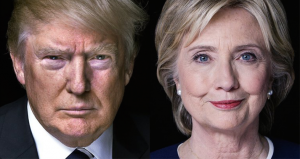Kate Chilton is a San José State University professor who is using Globalyceum’s Election 2016 in her classroom. We have invited her to blog about her plan for teaching the upcoming Presidential Debate.
It is not often that an American political event outdraws the Super Bowl on television. But if 100+ million Americans watch the first presidential debate on Monday, as many predict, that may very well happen.
Here’s how my colleague, Laura Guardino, and I are teaching this signature election event using Globalyceum’s Election 2016. Globalyceum has decided to run a special debate poll that opens on Monday, September 26, at 6:00 AM PDT and is available through Friday, September 30, at 11:55 PM PDT. It runs parallel with the Second Mock Student Election, so students will be able to take a poll and vote in the same week. For students unable to see the live debate, we will encourage them to check online for full debate videos (CNN and PBS will likely offer it).

In the days following the Monday debate, we will encourage students to watch the debate and participate in the poll and vote. But our learning objective is for students to gather information and analyze the way the debate shapes public opinion in this crucial period. Both of us plan to assign Globalyceum’s “Problem: Do Debates Make a Difference?” in the Comparative Problems list. We like the way it asks students to watch a comedy show about the debate, comment on the satirizing of the candidates, and consider the influence that comedy shows may have on young people this election season.
The following Monday, each of us plans to start class by showing Melinda Jackson’s video on the debates, a followup to videos on the Conventions and the Battleground States. I will have 2-3 students share in class their comedy clips from YouTube and have a whole-class discussion about satire and its influence on politics. Laura will divide her class into small groups for a 20-minute small group session so that students can discuss the information they have accumulated from the debate, comedy shows, news media, the video, and the poll results to answer this question: Is your impression of the debate similar or different to your classmates (according to the poll results), the news media, or other public commentators (including comedy shows)? Why?” Group leaders will report out the results of the discussion. As always we give participation points for student participation. Globalyceum’s grade book automatically records students who vote, poll, and submit assignments.
On Tuesday morning, almost everyone will have an opinion about the debate so it is a great opportunity to engage students in this election. Don’t miss it. Please let me know if you have any other election-related engagement strategies with your students and feel free to reach out to me with any questions.
